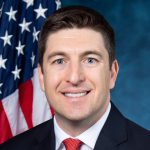Environmentalists Say End of Chevron Doctrine Could Harm Wisconsin Waters
US Supreme Court ruling overturning 40-year-old precedent reduces EPA power.

Starkweather Creek empties into Lake Monona at Olbrich Park in Madison. (Henry Redman | Wisconsin Examiner)
Environmental and administrative lawyers say that efforts to protect Wisconsin’s water from contaminants such as PFAS could be harmed by the U.S. Supreme Court’s decision last week to overturn the 40-year-old precedent known as Chevron deference.
Chevron deference has guided the federal regulatory state for decades, telling judges assessing the legality of a regulation to defer to the expertise of agency staff. Under the Court’s ruling, federal judges have the final say on what a statute says and how a law such as the Clean Water Act should be applied to modern day problems.
Experts in environmental law say the decision in Loper Bright Enterprises v. Raimondo could have the effect of defanging important environmental protection laws and allowing regulated industries to delay new rules, potentially allowing drinking water to remain contaminated for years while litigation winds its way through the federal court system.
“The end of Chevron deference has been talked about as part of this wider effort by the U.S. Supreme Court to dismantle the administrative state,” Tony Wilkin Gibart, executive director of Midwest Environmental Advocates, tells the Wisconsin Examiner. “And the administrative state really just means the ability of government to respond to issues that matter to everyday people that are important for the health of the environment, for the health of communities, and to secure and protect the rights of workers, of everyday folks across the country.”
Wilkin Gibart says that the machinery of government already moves slowly, noting that for years and even decades the harmful effects of PFAS contamination in drinking water have been known, yet only now is the EPA establishing standards. Under Loper, he says, industry groups and federal judges can slow down that process even further.
“We’ve known for many, many years, and in some cases even decades now, that certain PFAS compounds pose serious risks to human health,” he says. “It is just in the last year that EPA has updated the Safe Drinking Water Act for six of the hundreds of PFAs compounds. That length of time is consistent with how the machinery of government works. Unfortunately, now on top of that, we can see many years of litigation where federal court judges have the ability to insert their own opinions into the process, which at the very least, will delay the ability of the government to respond even further.”
“These delays have human consequences,” he continues, noting that every day a regulation isn’t implemented means millions of people are drinking contaminated water. “It’s mind boggling, what that means in terms of human health.”
Howard Learner, executive director of the Environmental Law and Policy Center, says that the Court’s decision will harm the ability of agencies like the EPA to protect Wisconsin’s rivers and the Great Lakes.
“The Supreme Court’s decision radically shifts and re-allocates constitutional power from the executive branch and the legislative branch of government to the judiciary,” Learner says. “The State of Wisconsin and people throughout Wisconsin and the Midwest rely upon federal agencies acting under the Clean Air Act and Clean Water Act to better protect and improve air quality so that we have healthy air to breathe and better protect clean water so that we have safe water to drink, and the Great Lakes and our rivers are not dirty.”
Most immediately, the Supreme Court’s decision in Loper could play a role in the regulation of PFAS in drinking water, according to Steph Tai, a law professor at UW-Madison who researches the interactions between environmental science and administrative law. Just weeks ago, Tai says, a group of chemical companies filed a challenge with the EPA arguing that requirements under the Safe Drinking Water Act — which authorizes the agency to set health standards for drinking water — don’t apply to PFAS.
That challenge has been filed so recently, Tai says, that the chemical companies will be able to use the Loper decision to their advantage.
Initial reactions from legal observers about the effects of the Loper decision have frequently focused on the amount of work the new framework will put on the federal judiciary. Tai says the Loper decision incentivizes industry groups to challenge new regulations.
Under federal law, challenges to new federal rules jump right to the appellate court level because the fact-finding usually reserved for circuit courts has already been done during the rulemaking process. Filing straight to an appellate court is often cheaper, since groups don’t need to cover expenses such as expert witnesses. That relative cost difference, according to Tai, encourages challenges because the cost-benefit analysis of bringing the suit is so clear.
For Wisconsin, Tai says, this could look like agricultural industry groups challenging regulations that apply to large factory farms while leaving small and mid-sized farms on their own.
“The incentives are that if you have enough money, you’re a big player, you might as well throw everything at the wall and see if it sticks,” Tai says. “If it’s at the appellate level, it’s really pretty cost effective, considering the potential gains that you get. This doesn’t play out for smaller sorts of parties. So for example, if you have some regulation that disparately affects large farms versus small scale farms, the way the economics works is that the large farms are going to more likely be able to do those challenges and more likely have incentives to do those challenges. And say, mid-scale farms don’t have that sort of cost threshold to bring this kind of challenge, and so there’s going to be this weird, disparate effect that arises out of just the practical dynamics of bringing these cases.”
Tai and Wilkin Gibart say that in Wisconsin, the effects of Loper will be felt especially keenly because Republicans have already been successful in limiting the state’s administrative agencies in the same way the Loper decision does at the federal level.
In a 2018 Wisconsin Supreme Court decision in Tetra Tech v. Department of Revenue, the longstanding practice of deferring to state agencies’ interpretations of statutes was ended. The effect of that decision was exacerbated by legislative changes such as the REINS Act — which forces agencies to get approval from a legislative committee if the estimated cost of a proposed rule exceeds $10 million over a two-year period.
“As a consequence of all of those things that we’ve seen over the last decade plus in Wisconsin, our state government has been slower to respond to significant public health issues like keeping PFAS out of water and advancing climate solutions,” Wilkin Gibart says. “And so our state government has been weakened in the same ways that the U.S. Supreme Court is now weakening the federal government.”
He adds that in Wisconsin, where groups such as Wisconsin Manufacturers and Commerce are suing to prevent the DNR from applying the state’s spills law to PFAS and ending the requirement that factory farms obtain permits for handling the manure they create, the end of Chevron deference makes it more important that Wisconsin’s regulatory authority be strengthened.
“We are also seeing, on the state level, legal attacks on the power of state agencies to implement basic environmental and public health laws — like Wisconsin Manufacturers and Commerce asking state courts to upend the spills law — to prohibit the release of hazardous substances,” he says. “We’ve also seen WMC attack another law that requires the state’s largest livestock facilities to apply for permits before producing and spreading millions of gallons of manure. The federal government will likely be less effective in doing the kinds of things that most of us expect that it should do, like preserve a healthy and the whole future. And for that reason, it is even more important for those of us in Wisconsin to defend and rebuild the power of our state to act in the public interest.”
Environmental lawyers say end of Chevron deference could hurt Wisconsin water quality was originally published by Wisconsin Examiner.





















Once again SCOTUS has ruled against the Common Good in favor of corporate greed. Rest assured the Roberts’ court is doing its utmost to dismantle the Constitution in favor of a fascism.
Another win for the law firms once individual and/or class action lawsuits are filed against these polluters. At some point these companies will run to the uneducated legislators for laws to help them.
This is despicable. Wisconsin once used to be on the forefront of protecting nature. Now, look at our state–totally caving to big corporate interests no matter the effect on our water or air or land. Despicable.